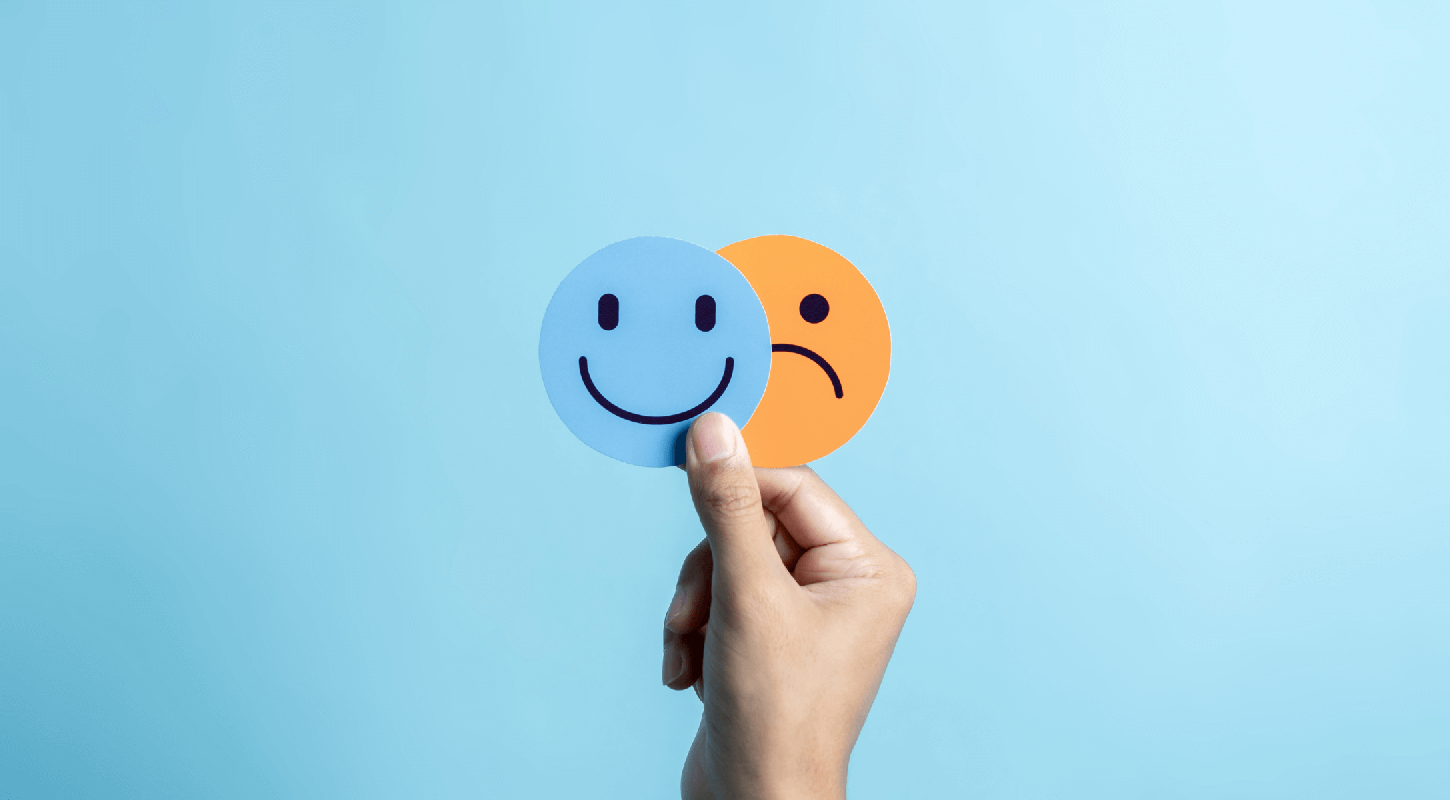As the leaves fall, the days get shorter and the temperature drops, it’s normal to notice a shift in your mood. While university is an exciting time filled with new experiences, independence and making friends, it’s important that we also talk about some of the challenges that can come with all this change. For some students, the winter months can bring about an unexpected dip in energy and mood. If this sounds familiar, you might be experiencing something called Seasonal Affective Disorder (SAD).
What is SAD?
SAD is a type of depression that you can experience at certain times of the year. It typically occurs over the winter months rather than the summer months. While it’s normal to feel a bit down or sluggish when it’s cold outside, SAD goes beyond the usual ‘winter blues.’ SAD and depression are more than simply feeling unhappy or fed-up for a few days, instead, when you’re depressed you feel persistently sad for weeks or months. It may affect your ability to concentrate on your studies, make new friends and enjoy everyday activities. Some people think SAD and depression is trivial and not a genuine health condition. They’re wrong – depression is a real illness with real symptoms. It is not a sign of weakness nor is it something you can ‘snap out of’ by ‘pulling yourself together’.
There is good news when it comes to dealing with SAD and depression, with the right treatment you can manage it and make a full recovery.
1 in 3 people in the UK experience SAD and according to a 2023 study by Student Minds, over half of students said they have a current mental health issue, with a further 30% saying that their mental health has worsened since starting university.
Common Symptoms of SAD
If you’re wondering if you may be dealing with SAD, here are some symptoms to look out for:
- Persistent tiredness or low energy
- Low mood or feelings of hopelessness
- Cravings for comfort foods or loss of appetite
- Irritability or anxiety
- Difficulty sleeping, despite feeling exhausted
- Loss of interest in activities you usually enjoy
- Avoiding social activities or staying indoors more than usual
Why do We Get SAD?
We’re still in the early days of understanding the ins and outs of SAD, but what we do know is that it is intrinsically linked to a reduced exposure to sunlight. The reduced daylight hours in winter can affect our hormones and your body’s internal clock, all of which can reduce levels of serotonin, the happiness hormone, and increase melatonin, the sleepiness hormone. This means that lack of sunlight can make us feel down and tired.
How to Combat SAD at University
Getting through SAD while balancing studies, social life and the pressures of university can be tough, but it’s important to know that you can recover from it. Here are some ways you can combat SAD while at university:
- Let the Light In
Make the most of daylight by opening your blinds in the morning and spending some time outside during daylight hours. If you’re in student accommodation, make your space cosy and bright to create a more uplifting vibe. You can check out our blog on ‘How to Make Your Accommodation Feel Like Home’ for more tips on how to do so.
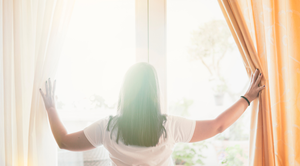
- Go Outside
Even a short walk can make a big difference. Fresh air and exposure to natural light will improve your mood. Consider walking to uni instead of taking the bus and aim to be outside for the sunniest parts of the day, whether it’s a walk between lectures or a study break in the park.
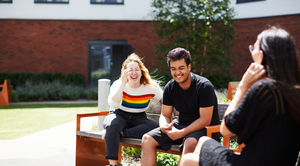
- Stay Social
It can be tempting to stay in bed and isolate yourself when you’re feeling low, but spending time with friends can really help. Whether it’s a casual coffee or going out for a meal, being around others will definitely lift your spirits. At Collegiate UK, our aim has been to keep students socialising and connected. All of our student accommodation comes with communal areas, with comfy sofas, pool tables and maybe even a cinema and karaoke room too.

- Exercise
Exercise has been proven to release endorphins, which are natural mood boosters. This does not mean you have to hit the gym, even some light exercise like yoga, or a brisk walk will do the trick. Find something you enjoy and make it part of your routine.
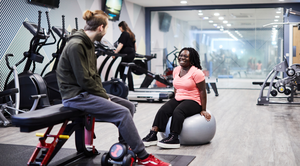
- Eat Well
A balanced diet can have a big impact on your mental health. Avoid relying on sugary snacks and comfort foods as a quick pick-me-up and instead focus on meals that have lots of nutrients like fruits, vegetables and whole grains.

- Prioritise Sleep
Getting quality sleep is essential for maintaining good mental health. Stick to a regular sleep schedule and create a relaxing bedtime routine to help your body wind down at night, whether that’s making some herbal tea, reading a book or catching up on your favourite Netflix series.
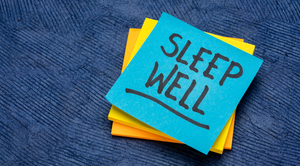
- Reach Out
It’s important to talk about how you’re feeling. Whether it’s with a friend, family member or mental health professional, sharing your thoughts will lighten the load.
If you’re unsure where to start, Student Minds is a brilliant mental health charity aimed at students that provides resources and support, including a free helpline. Text ‘STUDENT’ to 85258 or call 0808 189 5260 for free support, 7 days a week, from 3 pm to midnight.
If you’re looking for support for yourself, a friend or a loved one, here are some useful resources available:
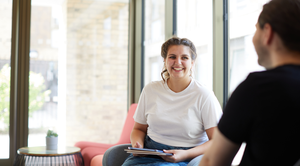
Collegiate UK and Health Assured: We’re Here to Help
At Collegiate UK, your wellbeing is our priority. That’s why we’ve partnered with Health Assured to provide a 24-hour helpline that supports our students with any personal challenges they may face. All residents also have access to our partners Health Assured. Health Assured offers a free 24-hour helpline and provides all of our residents with free access to the Wisdom App with a host of wellbeing guides, fact sheets, webinars, courses, health checks and more.
What’s more, many of our site managers and assistant managers have received mental health first aid training, with additional training ongoing, ensuring that support is always available when students need someone to talk to.
Stay connected, be kind to yourself and reach out for support.
